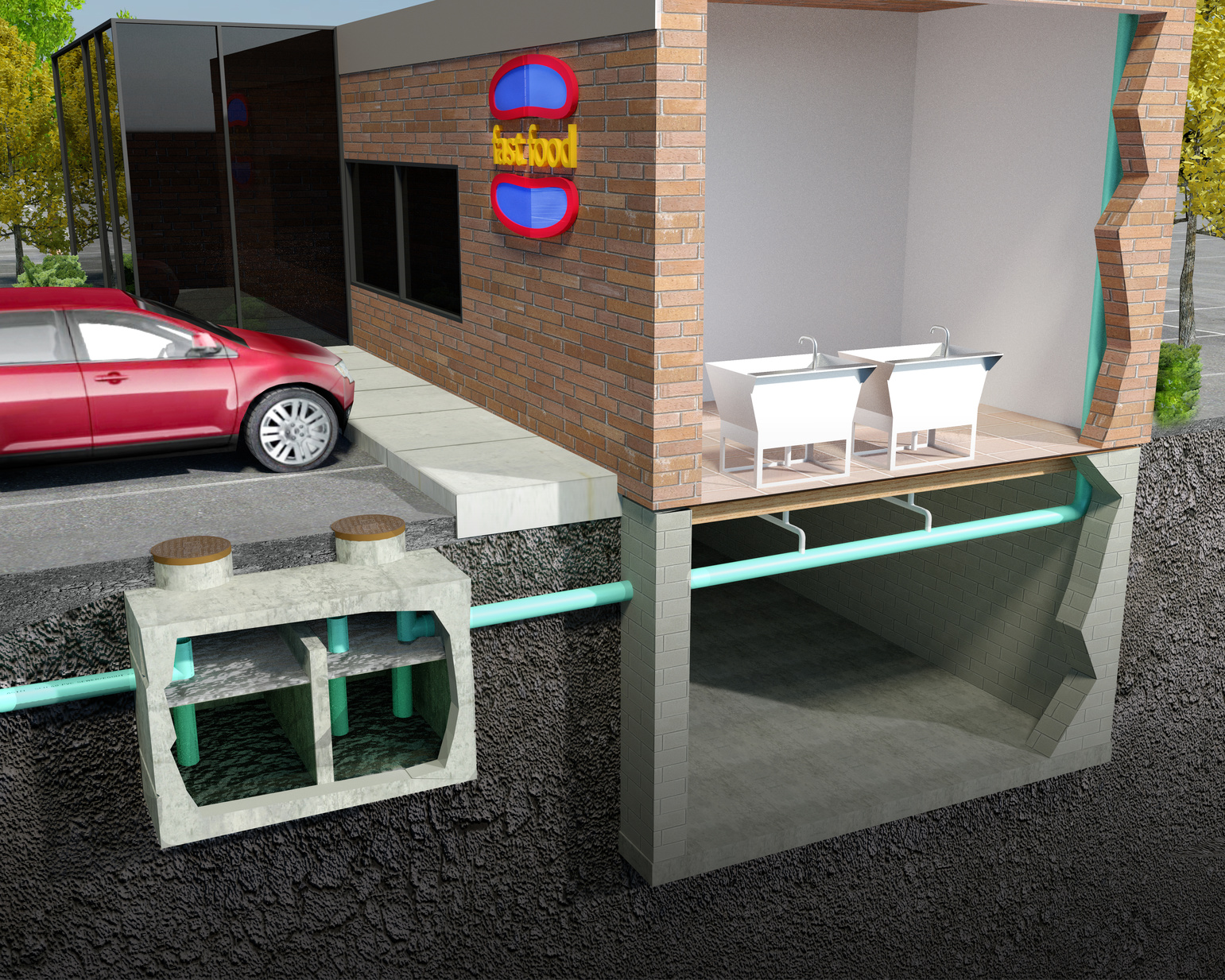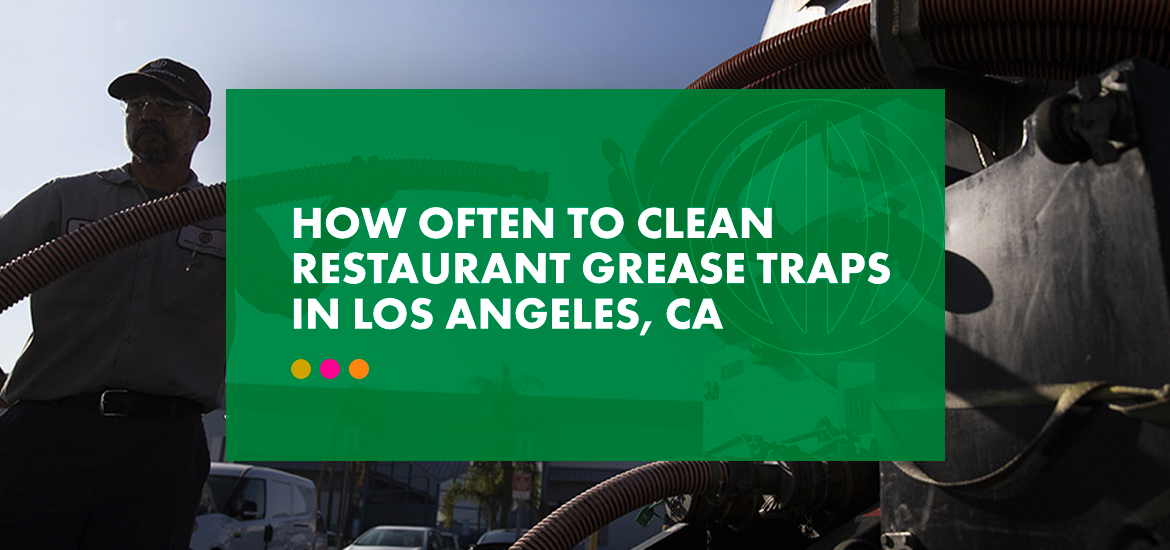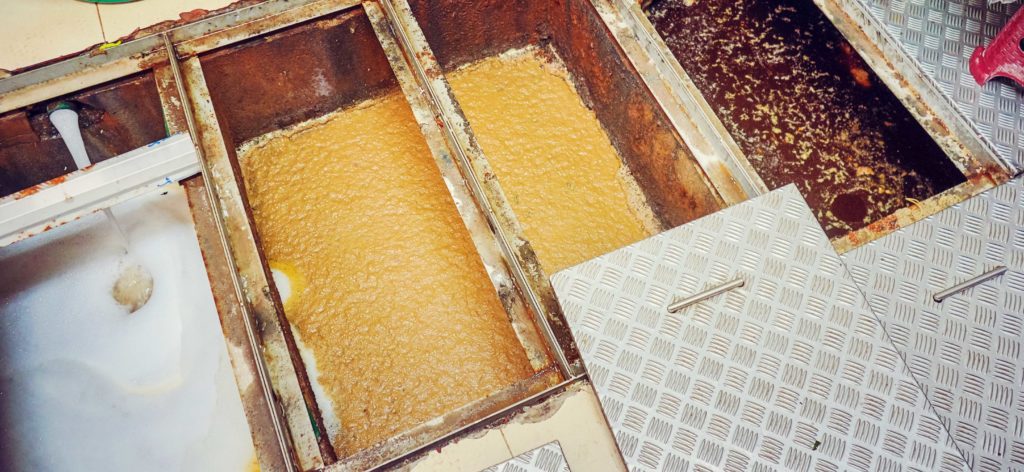Disclosure: This post contains affiliate links and I will be compensated if you make a purchase after clicking through my links. Learn More
Imagine walking into your restaurant, the aroma of delicious food filling the air, and customers happily enjoying their meals. But lurking behind the scenes is an often overlooked hero of the kitchen – your grease trap.
This unsung device plays a crucial role in keeping your kitchen running smoothly and your business compliant with health and safety standards. Are you aware of the regulations surrounding your grease trap? Overlooking these can lead to hefty fines, unexpected shutdowns, or worse, damage to your reputation.
Understanding these regulations is not just about avoiding penalties; it’s about safeguarding your investment and ensuring the longevity of your restaurant. You’ll discover everything you need to know about restaurant grease trap regulations.
You’ll learn how to stay compliant and why it’s essential for your business. Let’s make sure your kitchen keeps thriving without any hiccups. Read on to protect your restaurant and give yourself peace of mind.

Credit: www.mahoneyes.com
Importance Of Grease Traps
The importance of grease traps in restaurants often goes unnoticed by diners, yet they play a crucial role in maintaining a clean and sustainable environment. As a restaurant owner or manager, understanding the significance of grease traps can save you from costly fines and operational hiccups.
These devices are not just regulatory requirements; they are essential for smooth operations and environmental stewardship. Let’s dive into why grease traps are indispensable in the restaurant industry.
Role In Waste Management
Grease traps are vital in waste management by preventing fats, oils, and grease (FOG) from entering the sewage system. Imagine the chaos of clogged pipes and sewage backups—grease traps help you avoid these nightmares.
By capturing FOG, they ensure smooth drainage and reduce maintenance costs. Have you ever had to call a plumber in the middle of a busy shift? A functioning grease trap could spare you from that hassle.
Environmental Impact
Grease traps significantly contribute to environmental protection. When FOG enters the sewage system, it can wreak havoc on water treatment plants and local waterways. This pollution threatens aquatic life and the health of our communities.
By using grease traps, you’re playing a part in preserving the environment. It’s a small step with a big impact—keeping grease out of the water and safeguarding ecosystems.
So, what can you do to ensure your restaurant complies with grease trap regulations? Regular maintenance and cleaning are essential. Set a schedule and stick to it. Train your staff on the importance of proper disposal methods.
Have you considered hiring a professional for routine inspections? A little investment in maintenance can prevent hefty fines and environmental damage.
Grease traps are more than just pieces of equipment—they’re key players in your restaurant’s sustainability efforts. As you navigate the world of restaurant operations, keep in mind the critical role they play in waste management and environmental conservation. What steps will you take today to ensure your grease trap is functioning optimally?
Key Regulations For Grease Traps
Proper maintenance of grease traps is crucial for restaurant operations. Regulations ensure these systems work efficiently. They prevent sewer blockages and protect the environment.
Understanding key regulations helps restaurant owners stay compliant. It also avoids hefty fines and operational disruptions. Here are some essential guidelines to follow.
Federal Guidelines
Federal agencies set basic standards for grease trap systems. The Environmental Protection Agency (EPA) focuses on water safety. Restaurants must install grease traps to prevent oil from entering sewers. Regular maintenance is required to ensure compliance. Proper disposal of grease is essential. It must not end up in public water systems.
State And Local Requirements
State and local governments have specific regulations. They often vary by region. Local health departments play a key role. They conduct inspections and enforce rules. Size and type of grease traps may differ. Some areas demand specific cleaning frequencies. It’s crucial to check local codes regularly. Non-compliance can result in fines or closures.
Installation And Maintenance Standards
Restaurants must adhere to specific grease trap regulations. Proper installation and maintenance standards are crucial. These standards help prevent plumbing issues and environmental hazards. Understanding these guidelines ensures compliance and smooth operation.
Proper Installation Practices
Correct installation of grease traps is essential. Ensure the trap suits the kitchen’s size and needs. Position it close to dishwashers and sinks for effective waste capture. Use high-quality materials resistant to corrosion. Regular checks ensure connections remain secure.
Routine Cleaning Protocols
Regular cleaning of grease traps prevents blockages and foul odors. Schedule cleanings based on usage and capacity. Record maintenance dates for consistency. Use professional services for thorough cleaning. Ensure all components are functioning correctly after cleaning.
Common Compliance Challenges
Running a restaurant requires juggling many responsibilities, and adhering to grease trap regulations is one of them. Common compliance challenges can complicate this task, potentially leading to hefty fines or closures.
Understanding these hurdles can help you keep your restaurant in the clear and your kitchen running smoothly. Let’s dive into some of the most frequent issues restaurant owners face.
Inspection Failures
Imagine preparing for a busy weekend, only to be blindsided by a failed inspection. This scenario is all too familiar for some restaurant owners. Inspections can reveal unexpected deficiencies in your grease trap system. For example, improper installation or outdated equipment can result in non-compliance.
Regular inspections and routine checks are crucial. They allow you to catch issues early before they escalate. Are you sure your grease trap setup meets current standards? If not, an inspection failure could be on the horizon. Stay proactive by scheduling inspections and addressing potential problems promptly.
Maintenance Oversights
Maintenance oversights are another common pitfall. It’s easy to overlook the grease trap when you’re focused on serving great food. However, neglecting regular cleaning and maintenance can lead to blockages and foul odors.
Have you established a maintenance routine for your grease trap? If not, consider setting a schedule for cleaning and inspections. Consistent maintenance can prevent costly repairs and ensure compliance. You wouldn’t want a minor oversight to result in major repercussions.
Engage your team by sharing the importance of grease trap maintenance. When everyone understands its impact, compliance becomes a shared responsibility. Are you ready to make grease trap care a priority in your restaurant operations?
Penalties For Non-compliance
Ignoring restaurant grease trap regulations can lead to serious consequences. Businesses may face financial and legal challenges. These penalties are designed to ensure compliance and protect the environment. Understanding these penalties helps businesses stay on track.
Fines And Fees
Non-compliance with grease trap regulations often results in fines. These fines vary based on the severity of the violation. Repeated offenses can lead to increased penalties. Fees for inspections may also apply. This adds further financial strain on businesses.
Legal Consequences
Legal action is another risk of non-compliance. Authorities may pursue lawsuits against offenders. This can damage a restaurant’s reputation. Legal battles are costly and time-consuming. Compliance is crucial to avoid such legal issues.

Credit: bakercommodities.com
Best Practices For Compliance
Proper grease trap maintenance helps restaurants meet regulations. Regular cleaning prevents blockages and reduces environmental impact. Ensuring compliance avoids fines and keeps operations running smoothly.
Ensuring compliance with restaurant grease trap regulations is not just about adhering to the law; it’s about maintaining a safe and efficient kitchen environment. Navigating these regulations might seem daunting, but adopting best practices can simplify the process.
Whether you’re new to the restaurant business or a seasoned operator, it’s crucial to implement strategies that keep your establishment running smoothly and safely.
Training Staff
Empowering your staff with the right knowledge is the first step towards compliance. Regular training sessions can help your team understand the importance of grease management and how it impacts the restaurant’s operations.
Imagine the peace of mind knowing your staff can handle grease trap maintenance without supervision. It’s not just about teaching them the how-tos. Explain why grease trap compliance is critical.
Discuss potential fines and the impact on your restaurant’s reputation. A well-informed team is more likely to follow procedures and take ownership of their roles.
Regular Inspections
Scheduling regular inspections of your grease traps is a proactive approach to staying compliant. Routine checks can help identify any issues before they become costly problems. Consider setting up a calendar reminder to ensure inspections are never missed.
During inspections, check for blockages, leaks, and unusual odors. These could be signs of a malfunctioning grease trap. Addressing these issues early can prevent disruptions to your business and avoid penalties.
Compliance is not a one-time task. It’s an ongoing process that requires diligence and commitment. Are you ready to take the necessary steps to ensure your restaurant stays compliant?
Innovations In Grease Trap Technology
Innovations in grease trap technology are transforming how restaurants manage waste, ensuring compliance with regulations while boosting efficiency. Whether you are a restaurant owner or an aspiring chef, understanding these advancements can help you navigate the complexities of waste management. New technologies are simplifying processes, reducing environmental impact, and cutting costs.
Automated Systems
Automation in grease trap systems is game-changing. Imagine a system that monitors grease levels and alerts you before issues arise. It reduces the risk of overflow and blockages. These smart systems can even schedule maintenance, saving you from unexpected disruptions.
Do you remember the last time you scrambled to fix a clogged trap during peak hours? With automated systems, those frantic moments can be a thing of the past. It’s like having a silent partner who ensures your kitchen runs smoothly.
Eco-friendly Solutions
Eco-friendly grease traps are gaining popularity among environmentally conscious restaurant owners. These solutions focus on reducing waste and recycling grease for sustainable use. Some systems convert waste into biofuel, offering a greener alternative to traditional disposal methods.
Have you ever considered how your waste management choices impact the planet? By opting for eco-friendly systems, you contribute to a healthier environment. Plus, it’s a selling point for customers who value sustainability.
These innovations are shaping the future of restaurant operations. They offer practical benefits while aligning with modern values. How will you adapt to these changes to enhance your restaurant’s performance and reputation?

Credit: replaceyourgarbagedisposal.com
Frequently Asked Questions
What Are Grease Traps In Restaurants?
Grease traps catch food waste and oils. They prevent blockages in plumbing. Essential for smooth kitchen operations.
How Often Should Grease Traps Be Cleaned?
Clean grease traps every month. Regular cleaning avoids clogs and odors. Check local regulations for specific requirements.
Are There Penalties For Not Following Grease Trap Regulations?
Yes, there are fines. Non-compliance can lead to closures. Follow local laws to keep your restaurant safe.
Final Words
Understanding grease trap rules is crucial for every restaurant. They keep your kitchen clean and reduce environmental harm. Regular maintenance prevents costly repairs and fines. Follow local regulations to ensure compliance. Train staff on proper disposal methods. This simple step safeguards your business.
It also protects our waterways. Prioritize grease management to maintain smooth operations. Stay informed about changes in local laws. Being proactive helps avoid issues. A little effort goes a long way. Keep your restaurant running efficiently. Ensure a safe and healthy environment.
Peace of mind is priceless.


